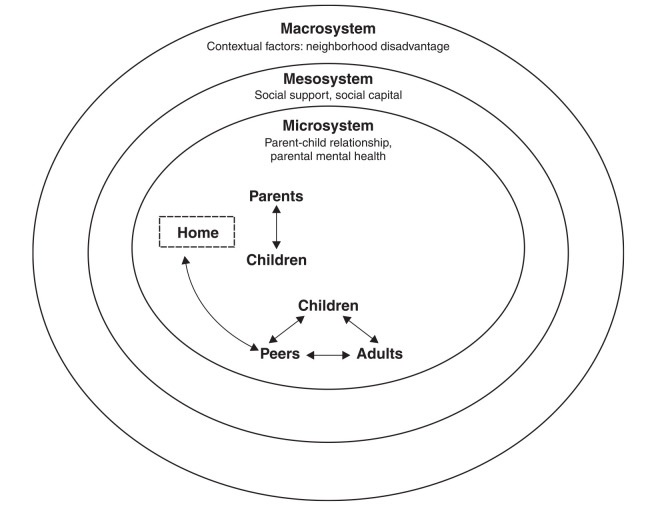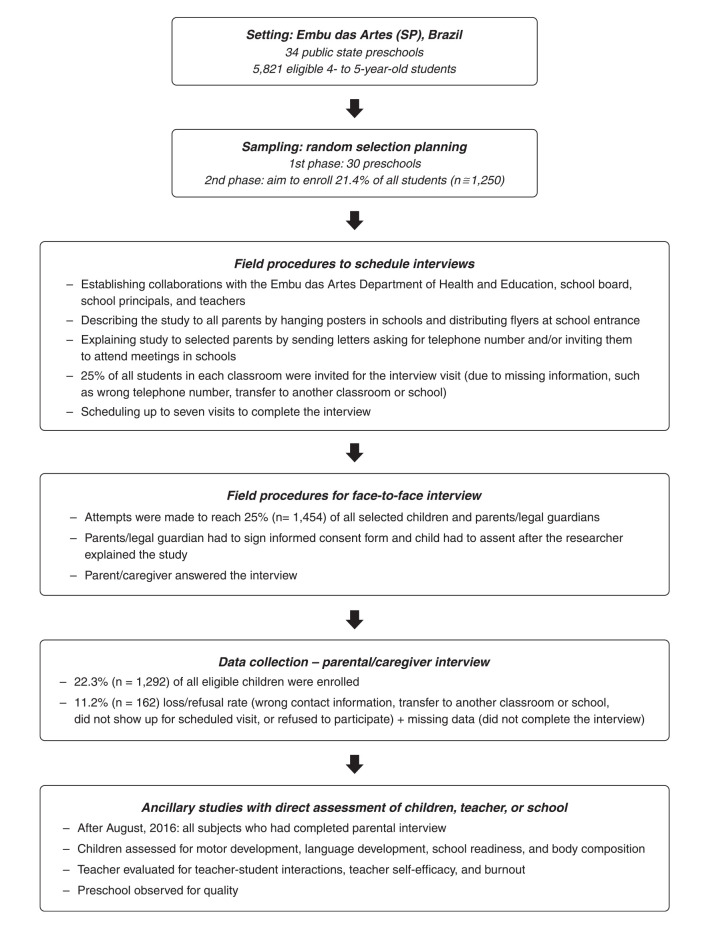An epidemiological study of childhood development in an urban setting in Brazil.
Revista brasileira de psiquiatria (Sao Paulo, Brazil : 1999)
Pub Date : 2021-02-01
eCollection Date: 2020-01-01
DOI:10.1590/1516-4446-2020-0934
引用次数: 11
Abstract
Objective: Mental illness is an important public health concern, often starting early in life and particularly impacting children from low-and middle-income countries. Our aims were to 1) determine, in a representative sample of public preschool 4- to 5-year old children in Brazil, the prevalence of internalizing and externalizing disorders and socioemotional development delays; and 2) to identify modifiable risk factors associated with mental, behavioral, or developmental disorders (MBDD), such as microsystem (i.e., parent-child relationship), mesosystem (social support), and macrosystem contextual factors (neighborhood disadvantage). Methods: A random sample of public preschool children was recruited in the city of Embu das Artes (São Paulo metropolitan area) (n=1,292 from 30 public preschools). Six-month prevalence of MBDD was measured using the Child Behavior Checklist (CBCL) and the Ages and Stages Questionnaires: Social-Emotional (ASQ:SE). Results: Six-month prevalence estimates were 25.4% for internalizing disorders, 12.1% for externalizing disorders, and 30.3% for socioemotional development delays. MBDD prevalence estimates were higher in families with stressful relationships and parental depression or anxiety, and in families with lower social capital. Conclusion: At least 25% of preschool children living in an urban area in Brazil presented a mental health disorder. These mental disorder were associated with modifiable factors such as stressful family relationships and lower social capital. Prevention and intervention measures such as family therapy are needed to decrease such high prevalence.


巴西城市儿童发展的流行病学研究。
目的:精神疾病是一个重要的公共卫生问题,往往在生命早期开始,对低收入和中等收入国家的儿童影响尤其大。我们的目标是:1)确定巴西公立学龄前4- 5岁儿童的代表性样本,内化和外化障碍以及社会情感发展迟缓的患病率;2)识别与精神、行为或发育障碍(MBDD)相关的可改变的风险因素,如微系统(即亲子关系)、中系统(社会支持)和宏观系统背景因素(邻里不利)。方法:在Embu das Artes市(圣保罗大都会区)的30所公立幼儿园中随机抽取1292名公立学龄前儿童。使用儿童行为检查表(CBCL)和年龄与阶段问卷:社会情绪(ASQ:SE)测量MBDD的六个月患病率。结果:六个月患病率估计内化障碍为25.4%,外化障碍为12.1%,社会情感发展迟缓为30.3%。在关系紧张、父母抑郁或焦虑的家庭以及社会资本较低的家庭中,MBDD的患病率估计更高。结论:巴西城市地区至少有25%的学龄前儿童存在精神健康障碍。这些精神障碍与诸如紧张的家庭关系和较低的社会资本等可改变因素有关。需要采取预防和干预措施,如家庭治疗,以降低这种高患病率。
本文章由计算机程序翻译,如有差异,请以英文原文为准。
求助全文
约1分钟内获得全文
求助全文

 求助内容:
求助内容: 应助结果提醒方式:
应助结果提醒方式:


